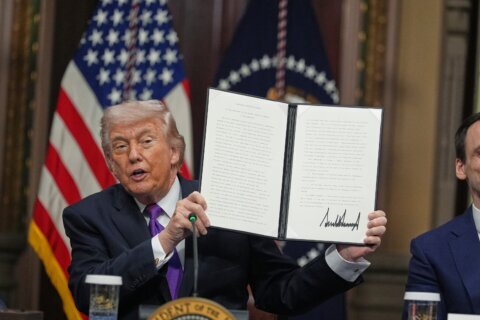WASHINGTON — As Virginia’s General Assembly prepares for its next session, one delegate hopes the commonwealth will be the next state to ban handheld cellphone use behind the wheel.
Del. Rich Anderson is persistent about a hands-free law, he said, because he wants to bring down the number of Virginians killed due to distracted driving.
“Every six months,” he said, “[Department of Motor Vehicles] numbers hover on either side of 85 dead Virginians because they were texting while they were driving.”
Several thousand people also are injured severely or critically during that same time period, he said.
In 2013, Virginia passed Anderson’s bill banning texting while driving. Since then, he has been working to expand the distracted-driving law, pushing for a bill requiring the use of hands-free devices behind the wheel. But it failed in the state legislature in 2014, 2015 and 2016.
D.C. was first in the area to ban handheld cellphones while driving, in 2004; Maryland banned their use in 2013.
“I think they get it right in this instance,” said the Republican delegate from Prince William County.
During the General Assembly’s new session, which begins Wednesday, Anderson wants to bring back a slightly different version of his bill. This year, he said, he wants to go after “behaviors that are still technically legal, such as watching YouTube, posting on Facebook, playing video games, that sort of thing.”
His ultimate goal is “a hands-free bill that required every operation to be accomplished by Bluetooth technology.”
Anderson originally tackled the texting-and-driving issue after three sisters who live in his district came to him. Their brother was killed, they told him, when a texting driver veered off the road and struck him, killing him instantly and permanently disabling a nearby Virginia state trooper.
Anderson admits such a measure could still take time. He does not think such a bill would pass this session in the Virginia House of Delegates. This is still a new concept in Virginia, he said, so he is going after a hands-free bill little by little.
“My approach to this has been that I have to gradually each year win over increasing numbers of the members of the General Assembly to support the bill,” he said.







